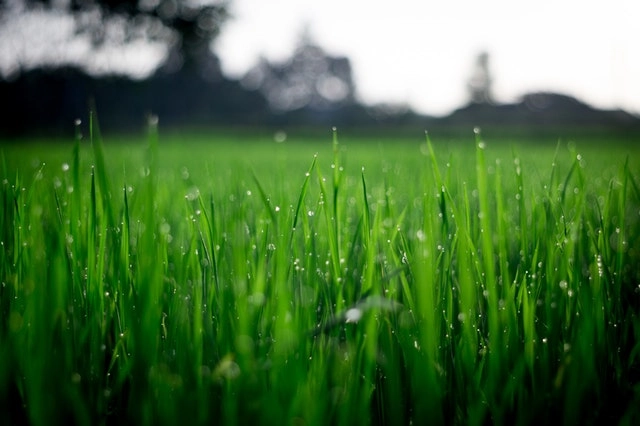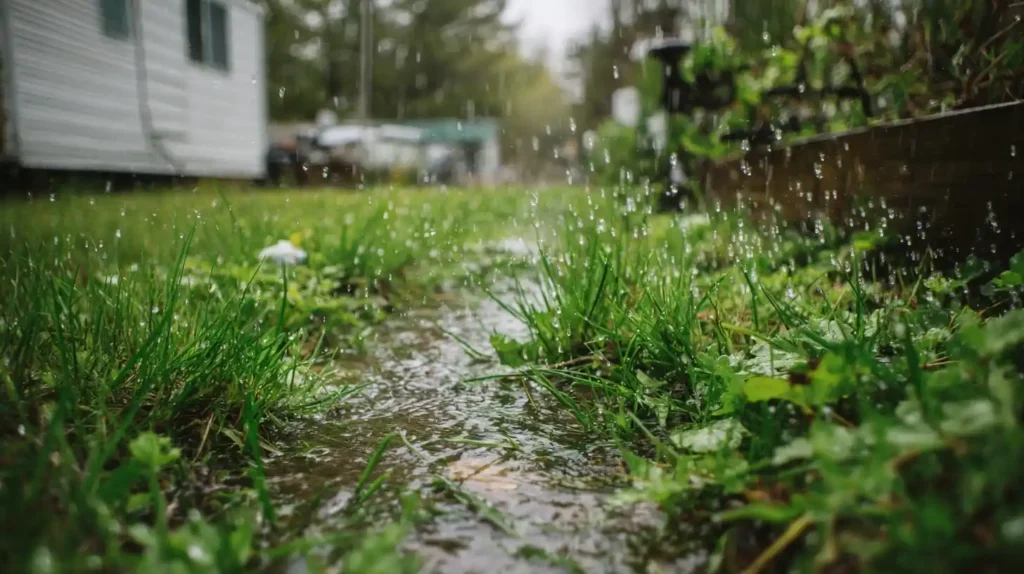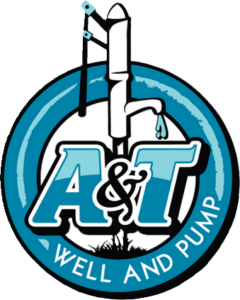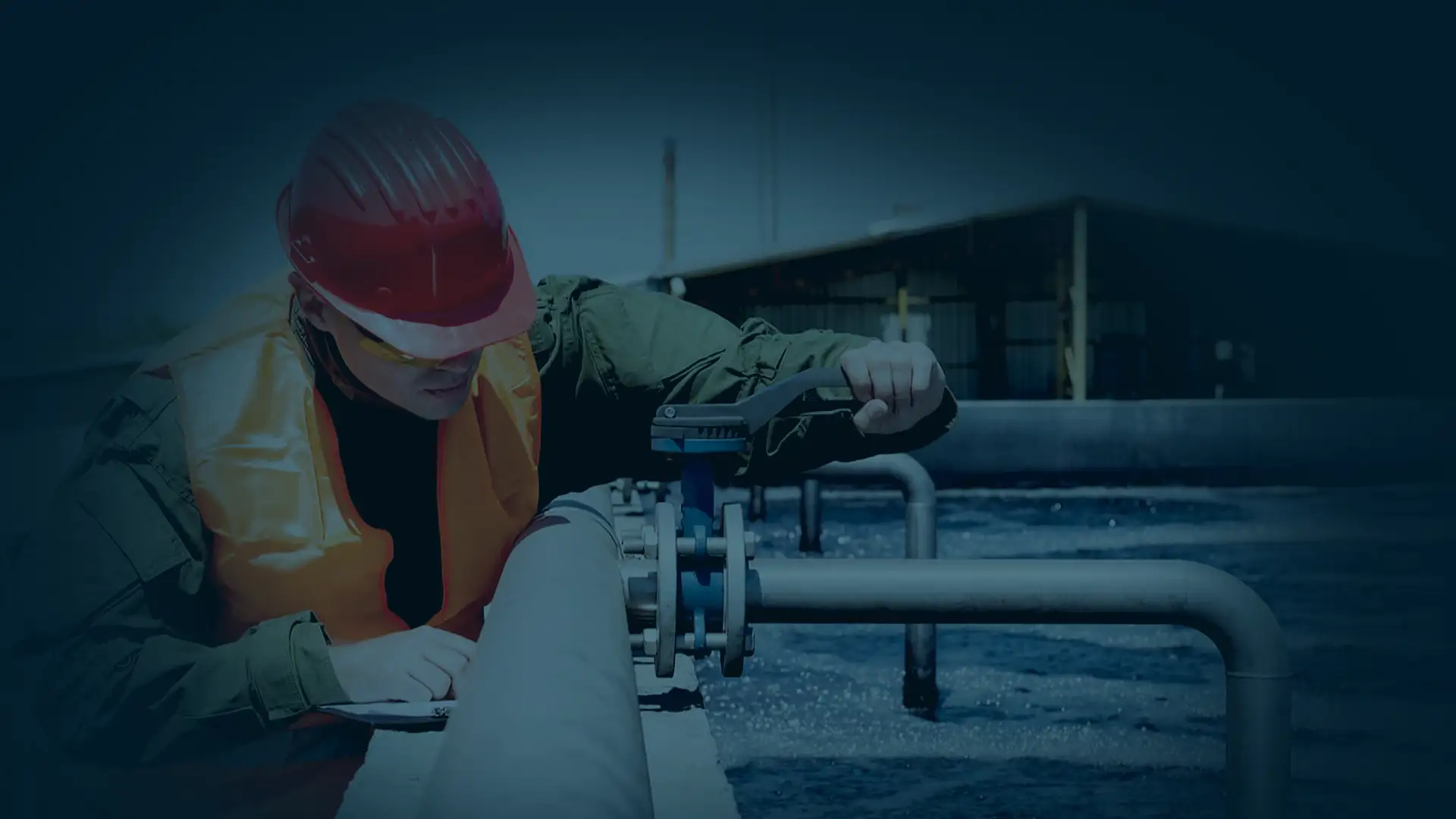Our experts will dive deep into whether or not water from a well is better…

If you have well water, you’re likely extra cautious when it comes to anything you put on your lawn, especially when it comes to fertilizer and weed killer. While these things can keep your lawns green and thriving, the chemicals you put on your lawn can soak into your soil and possibly contaminate the groundwater.
If you rely on well water for your home, you may be concerned about whether fertilizers and weed killers are safe for well water and for putting in your yard. The team at A&T Well and Pump shares this concern and is committed to helping you keep your yard and garden healthy and flourishing while keeping your water clean and safe.
Table of Contents
How Fertilizers and Insecticides Affect Groundwater
Fertilizers, insecticides, and herbicides primarily affect groundwater by soaking into the earth and penetrating the water table. This is called leaching.
They also impact groundwater through runoff, in which they are carried into a stream or directly into the well water itself by excess water or precipitation.
As the fertilizers and chemicals are placed on plants and grass, they will make their way down into the soil. Whether or not they reach the groundwater depends on these factors:
Depth of the Groundwater
In Raleigh and throughout North Carolina, well water depth varies from 30 feet to hundreds of feet deep.
Persistence of the Chemical
This refers to how long it takes to degrade and break down. Chemicals that break down slowly are more likely to reach the groundwater.
Weather and Climate
Any heavy precipitation, irrigation, or flooding can speed up how fast chemicals move from the surface to the groundwater.
Soil Conditions
Loose, coarse soil allows water to travel faster and is filtered less before reaching the water table. Anything thicker can slow down the process.
Solubility
How easily does the chemical dissolve or break down in water? Highly soluble chemicals are more likely to reach the groundwater.
Runoff
Runoff is a much more pressing concern when dealing with fertilizers and lawn chemicals. If your yard is on any kind of slope, rain, and even watering the lawn, can carry chemicals that are still highly concentrated into nearby streams. In some cases, they can run directly into your well, creating a dangerous situation.
You can try to prevent runoff from contaminating your well by directing the water away from the wellhead. Extending downspouts, installing French drains, and creating rain gardens are all methods to try if this is a problem in your yard.

Which Lawn Fertilizers are Safe for Well Water?
If you want to use lawn fertilizers and have a well, there are some that are considered safer than others.
Use Organic Products
Organic fertilizers are made from natural materials, so they are less likely to contaminate your groundwater. Compost and bone meal provide essential nutrients and don’t contain the harmful chemicals that can be found in some other products. Organic fertilizers also promote microbial activity in the soil. This works to improve the overall health of your soil. Choosing organic fertilizers not only helps to protect your well, but also helps the environment.
Look for Granular and Liquid Fertilizers
Many people with wells in their yards opt for granular and liquid fertilizers. These types of fertilizers release nutrients slowly. This reduces the risk of groundwater contamination.
Granular fertilizers allow for the controlled release of nutrients. This can help your lawn to stay healthy. Plants can absorb liquid fertilizers quickly. This provides immediate nutrients while minimizing the risk of runoff.
Are Fertilizer and Weed Killer Safe for Well Water? Application Tips to Consider
To best prevent runoff and possible contamination, there are some application tips you’ll want to consider:
Don’t Over-Fertilize
You can have too much fertilizer on your lawn. When this happens, excess nutrients can seep into your well water. Every pesticide and fertilizer should have directions on how to use it properly, including dilution ratios, how to handle it, and how to dispose of excess. These instructions are advised and approved by the EPA with safety and prevention of contamination in mind. Also, don't use more than the recommended amount. This can not only lead to a higher likelihood of contamination, but you may also be more prone to damaging your lawn or garden.
Apply During Dry Weather
To prevent leaching, apply fertilizer during dry weather only. This will ensure the nutrients stay in your lawn, and not in your well.
Only Water When Dry
Just as you want to apply fertilizer in dry weather, you also only want to water your lawn when it is dry. This also prevents runoff and helps the fertilizer best absorb into the soil. When you do this, you can minimize the risk of contaminating groundwater.
Prevent Backsiphoning
If you are using a garden hose to spray chemicals and there is a drop in pressure, a siphoning action occurs. This pulls water back into the hose and can also pull chemicals directly into your water supply at the same time,unless your hose has an anti-siphoning device. The same applies when using a hose to fill a tank or container with chemicals in it. Make sure the nozzle of the hose is above the fill line to prevent backflow.
Keep a Safe Distance
Store, mix, and spray fertilizers, pesticides, and herbicides as far from your well as possible. Be sure to avoid mixing or spraying uphill from any well or water source. This goes for all wells, even unused ones, that may remain on your property.
Safe Disposal and Storage
When you're done using your lawn products, keep them covered and stored well off the ground to prevent them from leaching into the soil. This is also a good way to keep them away from children and pets.
If you have leftover items, don't pour them onto the ground or into a ditch or stream. This can lead to contamination. Consider sharing them with your neighbor or a friend, or take them to a hazardous waste collection site.
Alternatives to Traditional Fertilizer and Pesticides
If you'd like to feel confident that you're keeping your water free from chemicals, consider more environmentally-friendly, safe alternatives to chemicals to get a green lawn and healthy garden.
Here are some options:
- Keep your grass on the taller side, about two to three inches, to prevent weeds from growing.
- Spray vinegar to kill weeds and grass in unwanted locations.
- Discover organic and natural solutions for pesticides and herbicides.
- Use a fertilizer with a 3-2-1 ratio or nitrogen-phosphorus-potassium.
Test Your Well Water
If you're not sure about the safety of your well water, or you do use these chemicals regularly, have your well water tested every two years for heavy metals, nitrates, and volatile organic compounds (VOCs). It's recommended to test for pesticides every five years, but if you do use pesticides regularly, you may want to consider testing more frequently. The team at A&T Well and Pump provides this service so you can have peace of mind that your home has safe water to use.
For a more in depth look at your well and well water, we also provide well inspections. Our well inspection provides a recorded video that we review to look for any problems. A report is typically generated so that all findings are documented. This can include recommendations for any necessary repairs or maintenance. You can count on our team to be transparent in our findings and to only recommend what needs to be done to ensure the safest water for you and your family.
FAQ About Are Fertilizers and Weed Killers Safe for Well Water
How close to my well can I spray or store fertilizers and other lawn products?
Never mix, spray, or store fertilizers near your well. If you are using them, it’s recommended to keep them at least 100 feet away from your well head.
Will a deeper well keep me safe from chemical exposure?
The deeper your well is, the better the water should be because deeper water is less exposed to any outside elements. The shallower a well is, the more prone it may be to surface contamination.
Can fertilizer contaminate groundwater?
Yes, the nitrates found in nitrogen fertilizer can leach below the root zone and make their way into the water supply.
What are the risks of contaminated groundwater?
Contaminated groundwater can pose health risks such as gastrointestinal issues, as well as chronic conditions such as kidney damage and neurological issues.
Contact Your Well Water Specialists in Raleigh
If you want to know more about whether fertilizer and weed killer are safe for well water, the team at A&T Well and Pump is here to help because we understand the importance of safe, clean water for you and your family. If you'd like to learn more about well inspection and water testing, we encourage you to reach out to us at (919) 291-4063 or by filling out our contact form below. We also provide other commercial and residential services so that you have the safest water possible for your home and business.
"*" indicates required fields

